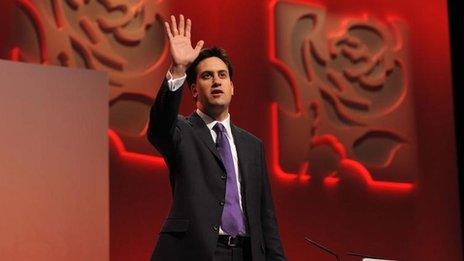Labour peer regrets 'buy a vote' election rules
- Published
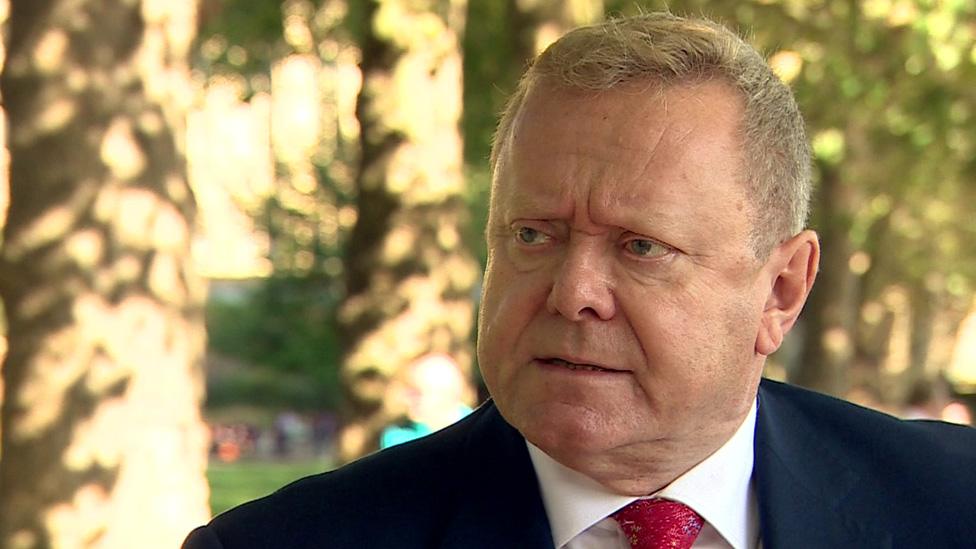
Lord Collins led the review that recommended a change in the way party leaders were elected
The architect of the process used to elect Jeremy Corbyn as Labour leader last year has expressed regret that it allowed some people to "buy a vote".
About 105,000 people paid £3 to sign up as "registered supporters" and overwhelmingly backed Mr Corbyn.
Labour peer Lord Collins told the BBC that the system introduced in 2014 had created a "transactional relationship" between the party and some voters.
The previous electoral college system gave more power to unions and MPs.
Guide to the Labour leadership election
Former Labour general secretary Lord Collins was speaking to the BBC on the eve of another Labour leadership contest result - as Mr Corbyn defends his leadership against a challenge from Owen Smith, having lost the confidence of the bulk of his own MPs.
In Labour leadership elections before 2015, MPs, affiliated union members and party members had one third of the vote each.
But that was criticised for giving too much influence to the trade unions and was changed to a "one member one vote" system, under then leader Ed Miliband in 2014.
Lord Collins, a former Labour general secretary, led a review in 2013 which recommended opening up the leadership contest to Labour supporters in the country at large, as registered supporters.
The peer said the changes had had unforeseen consequences.
"A lot of things were untested," he said.
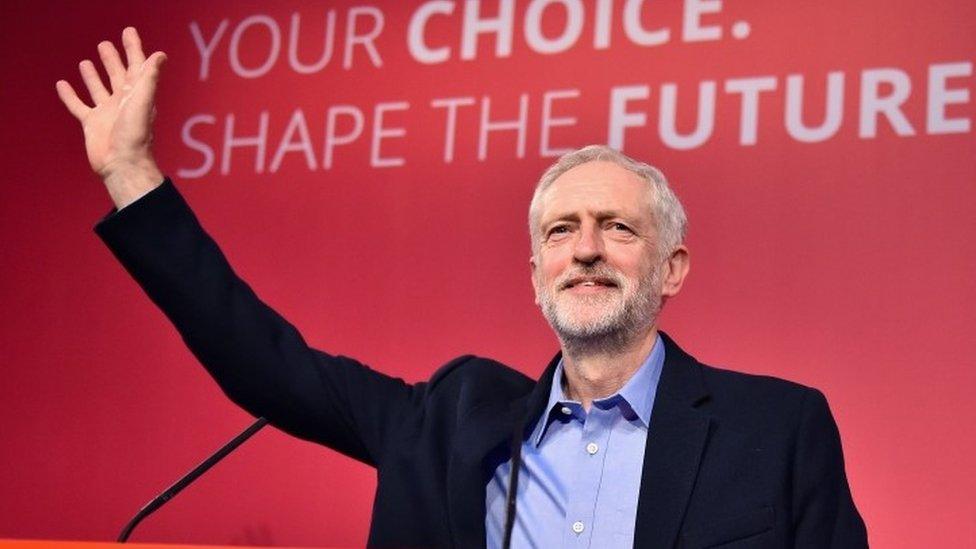
Mr Corbyn will learn on Saturday whether he has been re-elected as Labour leader
"My biggest disappointment is that the registered supporter became a transactional relationship which I thought was really wrong.
"A transactional relationship which is, well, "buy a vote" - "buy a vote for the leader of the Labour party" when in fact it was about building a relationship over time."
Deputy leader Tom Watson has led calls for a rethink of the process, saying the involvement of registered supporters had been "rushed and unpopular".
Lord Collins said Mr Watson had been right to call for a greater role for MPs in future leadership elections.
"Being a member of the Labour Party isn't about paying money and getting a vote.
"Being a member of the Labour Party is about shared values and wanting to change society and wanting to develop society."
Asked whether he felt regret over any of his reforms, Lord Collins said "of course", before adding that the circumstances the party found itself in at the time were very difficult and he was proud his report had brought people together.
The Labour peer said a system in which a leader could remain in place with the support of only 20% of his MPs was "not sustainable".
He said: "That's not going to change by whoever wins on Saturday - that's an issue we've got to continue to address."
The current leadership contest, the result of which will be announced on Saturday, has used the same rules.
This time around, however, those wanting a one-off vote in the contest between Jeremy Corbyn and Owen Smith had to pay £25. It is thought that 129,000 applications were accepted following a vetting process.
Supporters of the new rules say they have massively increased the Labour Party's membership and wider support base. The latest official figures, from August, showed the party has 515,000 members although reports have suggested it has now grown to about 550,000.
Mr Corbyn has said there is a "thirst for democracy" in the party and the country and the widest number of people should be allowed a say in the election of a leader.
- Published21 September 2016
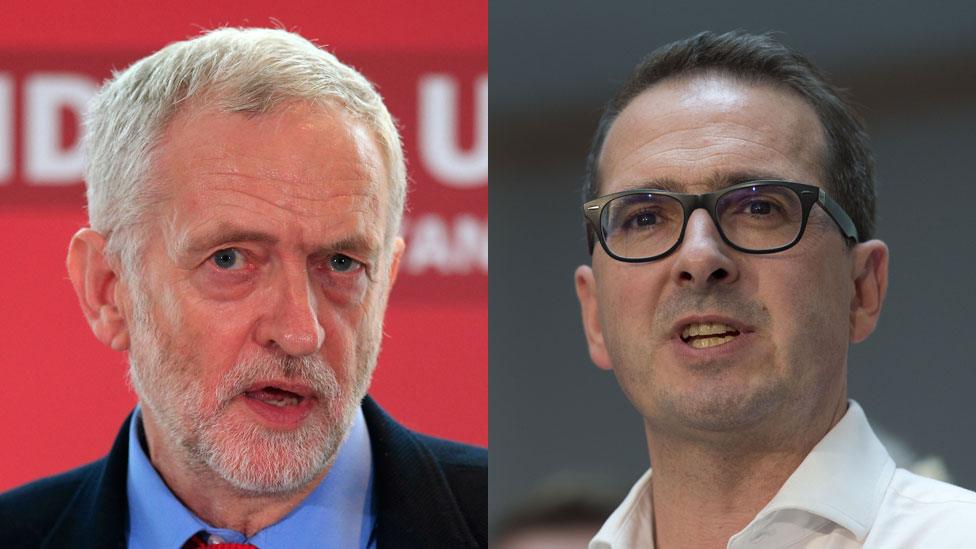
- Published31 January 2014
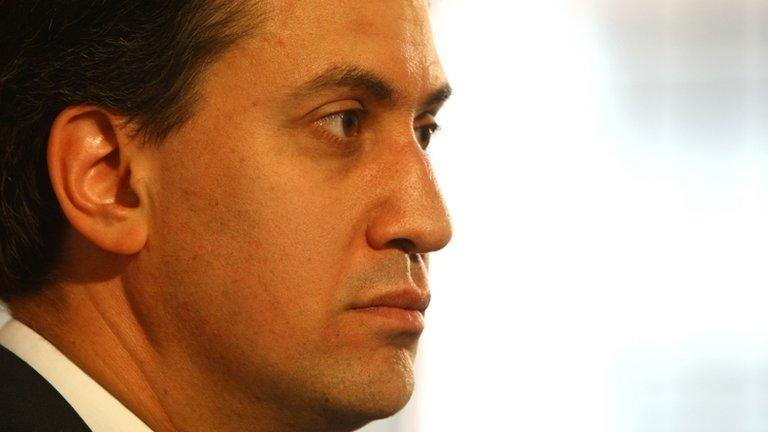
- Published16 January 2014
